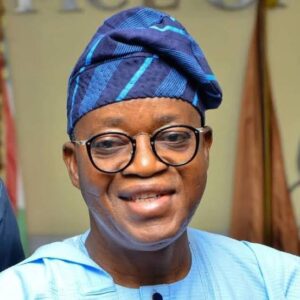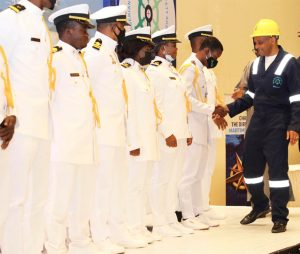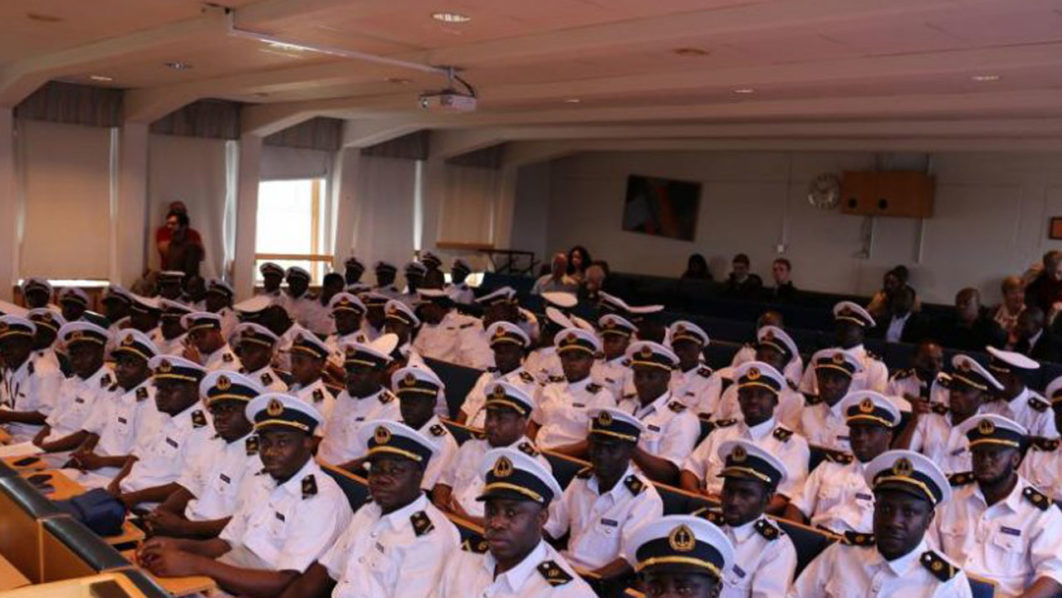As Nigeria prepares to join the rest of the world to commemorate the World Maritime Day on September 26, maritime experts have berated moves by the Director-General of the Nigerian Maritime Administration and Safety Agency (NIMASA), Dayo Mobereola to continue to churn out half-baked seafarers under the agency’s Nigerian Seafarers Development Programme (NSDP).
The maritime stakeholders expressed a disturbing concern that Mobereola, who became NIMASA DG on March 11, 2024 has continued to run the seaferers training program as his predecessors did by allowing the NSDP to continue as a channel for capital flight of billions of Naira without any concrete plan to provide the compulsory seatime training for cadets on the NSDP program.
Since inception in 2008, the NIMASA leadership has spent over N16 billion for training of 2,476 young Nigerians in the Philippines, India and Egypt under the NSDP without completing the training of over 95% of the cadets by providing them the compulsory seatime training onboard international sea-going vessels. In August 2022, NIMASA announced that it had raised training allowances for the cadets by $2,000, without mentioning the cost of each trainee’s program, citing inflation.
In June, 2024 the NIMASA DG, Mobereola said his administration had begun training of 435 cadets under the third phase of the NSDP plan, highlighting his resolve to continue the program which the NIMASA has successfully established as one of Nigeria’s major source of capital flight with nothing to show for it.
According to the International Transport Workers Federation (ITF), despite the investment of over N16 billion in training of cadets in the last 16 years, less than 100 Nigerian seafarers are employed on international merchant ships, representing an insignificant portion of the 78,000 certified seafarers across Africa.
During a visit of ITF officials to Nigeria, Africa Regional Secretary, Safiyanu Muhammed, expressed concerns over the non-employable status of NSDP-trained seafarers, underscoring the disheartening reality that a vast majority of these individuals remain unemployed. Muhammed said the situation called into question the efficacy of the NSDP and the quality of training provided.

Minister of Marine and Blue Economy, Adegboyega Oyetola
Expressing his disappointment over the failure of NIMASA’s NSDP to address maritime labour capacity despite the billions of naira spent on the program in the last 16 years, a maritime expert, Capt. Konni Duniya lamented that there would be a shortfall of 96,000 seafarers by 2026 in Nigeria’s maritime sector.
Capt Duniya is pained that foreign seafarers continue handle jobs on board vessels in Nigeria as their Nigerian counterparts have no seatime experience. This is another failure of NIMASA to implement the Coastal and Inland Shipping (Cabotage) Act 2003, which was designed to limit foreign participation in Nigeria’s domestic coastal trade. The objective of the Cabotage Act is primarily to reserve the commercial transportation of goods and services within Nigerian coastal and inland waters to vessels flying the Nigerian flag and owned by Nigerians. The act also created the Cabotage Vessels Financing Fund (CVFF) to further boost acquisition of vessels by local shipowners. This too has failed to work under the management of NIMASA.

Director-General, NIMASA, Dayo Mobereola
The maritime stakeholders believe that with the recent creation of the Ministry of Marine and Blue Economy, all developmental issues of the maritime sector should begin to attract a close attention and quickly resolved to ensure a faster growth of the country’s largely uncultivated maritime economy.
However, this has not been so as the apex regulatory agency which is consititionally laden with the responsibilty òf developing the sector continues to do business as usual, leaving no positive impact more than a year after a dedicated maritime ministry was created.
Presenting a paper at the 2024 Lecture Series of the Maritime Academy of Nigeria Oron, titled: “Addressing Human and Institutional Capacity Development in Nigeria’s Maritime Sector Through Stakeholders Partnership,” Duniya expressed concerns that the country would suffer huge shortage of adequate and competent seafarers in the coming years if the manpower gap in the sector was not urgently addressed.
She blamed the current situation on domination of Nigeria’s maritime sector by seafarers of foreign countries, issuance of fraudulent Certificate of Competency CoC, lack of database to validate cadet’s education, training and experience, all of which are cumulative failures of NIMASA in dispensing its statutory functions over the years, the pedestal on which the current boss of the agency has continued.
She also identified non-compliance with STCW Convention of International Maritime Organization as one of the major factors and limitations causing low employment opportunities for Nigerian seafarers. The International Convention on Standards of Training, Certification and Watchkeeping for Seafarers (STCW) of the International Maritime Organization (IMO) adopted in 1978 and having gone through several reviews in the past four decades, spells out internationally accepted standards for maritime labour training.

Immediate past NIMASA DG, Bashir Jamoh inspects a section of cadets under the NSDP in Augist, 2022. Photo: NIMASA
Duniya said: “Nigeria has been on the IMO STCW whitelist since 2019 however Nigerian seaferers are yet to benefit from this achievement due to the inability of Nigeria to sign MOU with the most respected countries like UK, Australia and most of Europe.
“Signing MOU with such countries will help strengthen our image as a serious maritime nation and open doors for employment of Nigerian seafarers globally. Nigeria is the only country with unemployed seafarers in the world despite the cabotage law which seems to have been poorly implemented and shortage of seafarers globally.
“There needs to be proper housekeeping in NIMASA to combat issues of seatime training and licence forgery through the use of block chain and cloud computing.”
In his presentation, MD,/CEO, First Rit Nigeria Limited, Eric Umezurike called on NIMASA to stop sending ‘select’ trainees abroad to study on scholarship when there are maritime institutions in the country.
According to him, many of the cadets trained under the NIMASA NSDP have ended up operating canoes and local boats, while others loiter around the seaport corridors in Apapa without jobs to do.
“In a country where the vessels operating within the coastal waters are owned by foreigners, it is pertinent that employment of seafarers will be based on bias especially when the locals are not qualified,” he noted.
Meanwhile, faced with this monstrous problem in the maritime sector, the NIMASA DG, Mobereola continues to encapsulate the bitter pill with sugar coats, just as his predecessors did. In June 2024, he announced the agency’s plan to train 434 cadets in the third phase of the NSDP.
While speaking at the Day of the Seafarer 2024 in Lagos, Mobereola however, confirmed that there are “challenge which lie in securing placements for these qualified seafarers, but NIMASA is working to resolve them.”
According to him, the Agency is exploring avenues to create jobs for seafarers, including collaborating with government agencies like the Nigerian Content Development and Monitoring Board (NCDMB) and the Nigeria Immigration Service (NIS) but, these only end in the speeches.


